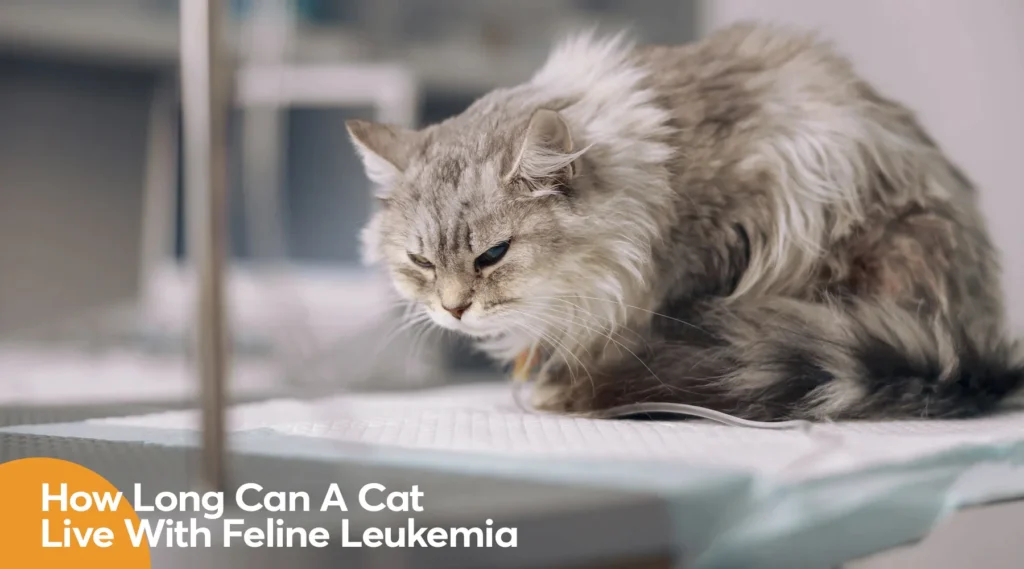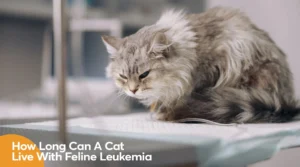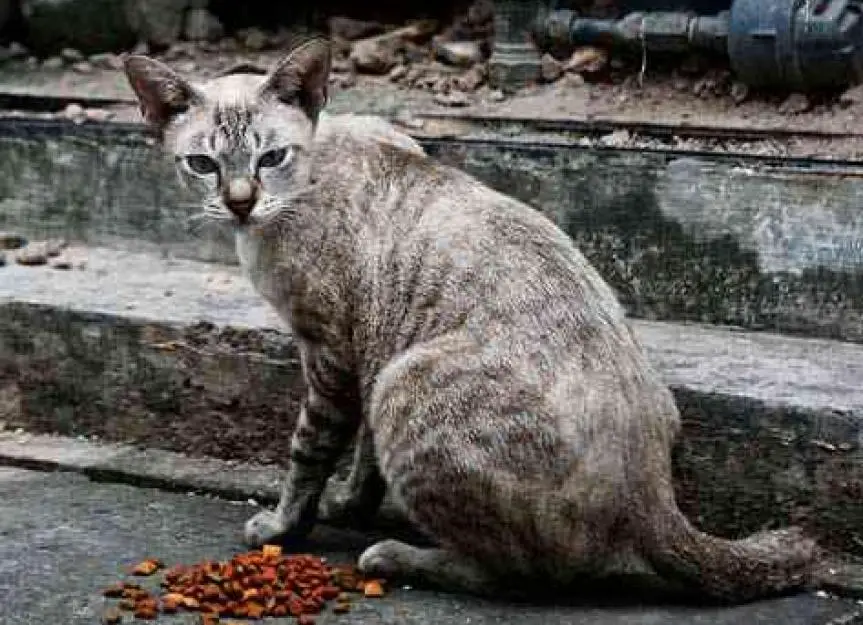How Long Do FLV Cats Live?
FLV stands for feline immunodeficiency virus, a retrovirus that infects cats and weakens their immune system. FLV is similar to HIV in humans, but it cannot be transmitted between species. FLV-positive cats may not show any symptoms for years, but they are more susceptible to secondary infections and diseases. In this article, we will take a look at how long do FLV cats live and what factors affect their longevity.
Lifespan of FLV Cats
The lifespan of FLV cats can vary, but with proper care and management, they can live as long as non-infected cats. On average, FLV cats can live for many years, some even reaching their late teens or early twenties. However, some FLV cats may die within about 5 years after their diagnosis.
The factors that affect the longevity of FLV cats are their health condition, their level of socialization, and their spay/neuter status. FLV cats may have various health problems that can reduce their lifespan significantly if they are not detected and treated early. FLV cats may also have different degrees of socialization that can affect their quality and length of life positively or negatively depending on the situation and the environment. Spaying or neutering FLV cats can improve their health and lifespan significantly by preventing reproductive issues and behavioral problems.
Health Condition
The first factor that affects the lifespan of FLV cats is their health condition. FLV cats may have various health problems that can affect their quality and length of life outdoors or indoors. Some of the common health problems are:
- Rabies: Rabies is a viral disease that affects the nervous system and can be transmitted by bites from infected animals. It is fatal if not treated promptly. FLV cats are at risk of contracting rabies from other wildlife or unvaccinated cats. Therefore, it is essential to vaccinate FLV cats against rabies if they are rescued or adopted by humans.
- Feline leukemia virus (FeLV): FeLV is a retrovirus that causes immunosuppression and cancer in cats. It can be spread by saliva, blood, urine, or feces from infected cats. FLV cats are at risk of contracting FeLV from other cats in their environment or from fighting with other cats. Therefore, it is important to test FLV cats for FeLV if they are rescued or adopted by humans and isolate them from other cats if they are positive.
- Feline infectious peritonitis (FIP): FIP is a fatal disease caused by a mutation of a common coronavirus in cats. It can cause inflammation of the abdomen, chest, or brain in cats. FLV cats are at risk of contracting FIP from exposure to the coronavirus in their environment or from other cats. Therefore, it is important to monitor FLV cats for signs of FIP, such as weight loss, fever, lethargy, or difficulty breathing if they are rescued or adopted by humans and seek veterinary care if they show any symptoms.
These health problems can reduce the lifespan of FLV cats significantly if they are not detected and treated early.
Socialization
The second factor that affects the lifespan of FLV cats is their level of socialization. Socialization refers to the process of learning how to interact with humans and other animals. FLV cats may have different degrees of socialization depending on their history and personality. Some FLV cats may be friendly and trusting towards humans and other pets, while others may be fearful or aggressive. The level of socialization can affect the quality and length of life of FLV cats in different ways:
- Friendly and trusting FLV cats may have a better chance of finding food, shelter, and care from humans or other pets. They may also enjoy indoor life if they are rescued or adopted by humans. However, they may also face more risks of injury or disease from roaming, fighting, or mating with other cats or animals. They may also be more vulnerable to human abuse or cruelty if they encounter unfriendly people.
- Fearful or aggressive FLV cats may have a harder time finding food, shelter, and care from humans or other pets. They may also have difficulty adjusting to indoor life if they are rescued or adopted by humans. However, they may also avoid some risks of injury or disease from roaming, fighting, or mating with other cats or animals. They may also be more cautious and defensive towards human abuse or cruelty if they encounter unfriendly people.
The level of socialization can affect the lifespan of FLV cats positively or negatively depending on the situation and the environment.
Spay/Neuter Status
The third factor that affects the lifespan of FLV cats is their spay/neuter status. Spaying or neutering is a surgical procedure that prevents cats from reproducing. Spaying or neutering FLV cats can have several benefits for their health and longevity:
- Spaying or neutering FLV cats can prevent reproductive issues such as uterine infections, mammary tumors, testicular cancer, or prostate problems that can reduce their lifespan.
- Spaying or neutering FLV cats can reduce behavioral problems such as roaming, fighting, spraying, or mating, which can increase their risk of injury or disease.
- Spaying or neutering FLV cats can reduce the population of unwanted kittens that may suffer from starvation, disease, predation, or euthanasia.
Spaying or neutering FLV cats can improve their quality and length of life significantly.
Conclusion
The lifespan of FLV cats depends on several factors, such as their health condition, their level of socialization, and their spay/neuter status. FLV cats face many challenges and dangers in their outdoor or indoor environment, such as predators, diseases, weather, and human hostility. Therefore, their average lifespan is shorter than that of non-infected cats, which can live up to 20 years or more indoors. However, some FLV cats may live longer if they are rescued or adopted by humans who provide them with food, shelter, and veterinary care. The best thing we can do for them is to spay or neuter them and provide them with love, care, and respect for as long as they are with us.





